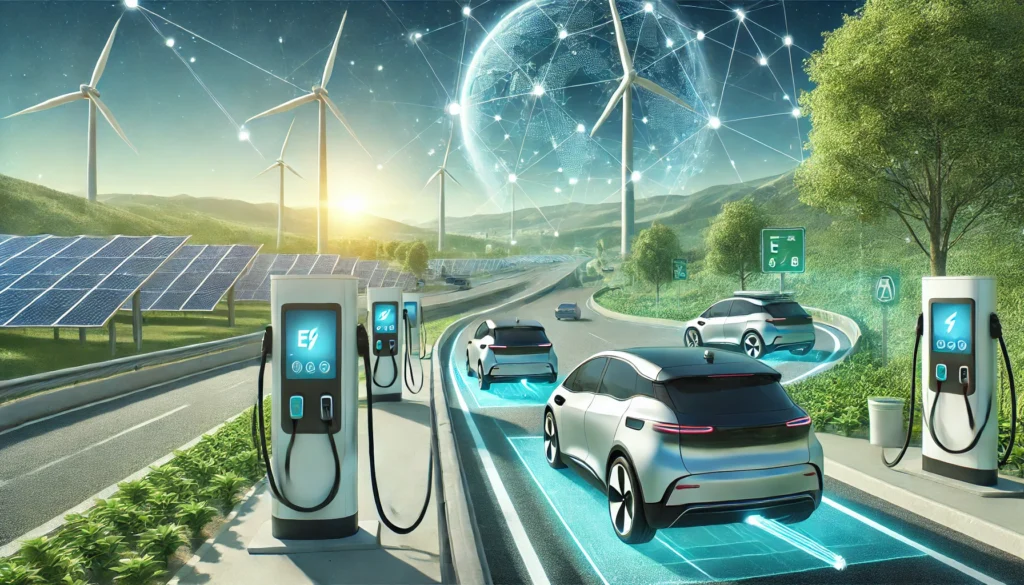Navigating the Future of Cars: Trends, Challenges, and Breakthroughs
The world of Automobile industry is changing faster than ever, driven by incredible tech advances, shifting customer needs, and stricter environmental rules. Where gas-guzzling engines once reigned, we’re now moving toward electric cars, self-driving vehicles, and cars that are smarter and more connected than we could have ever imagined. Here’s a look at the biggest trends, new tech, and challenges on the road ahead for the auto industry.
Get valuable deals on automobiles
1. The Big Shift to Electric Cars
Why Everyone’s Talking About EVs: Electric vehicles are no longer a niche. Car brands like Tesla, GM, and Volkswagen are investing big in electric models. Why? Battery tech is improving, making EVs cheaper and easier to charge, while global pushes for cleaner air mean governments and consumers alike are on board with EVs.
Government Boosts: Many governments are sweetening the deal for people who buy electric, offering things like tax breaks, subsidies, and even cash-back offers. Countries like Norway and China are at the forefront, using these incentives to make EVs more affordable and accessible for everyday drivers.
Wanna know more about automobile industry
2. Self-Driving Cars: A Dream on the Way
What is “Autonomy” Anyway? In the world of self-driving, there are different levels—from Level 1 (where the car offers a little help) to Level 5 (where the car does it all). Right now, most cars with autonomous features are around Level 2 or 3, so a driver still needs to stay alert and ready to take the wheel if needed.
Big Names Driving Forward: Companies like Google’s Waymo, Apple, Ford, and Toyota are pouring money into self-driving tech, teaming up to bring us closer to fully autonomous cars.
The Big Challenges: Making cars that can safely handle the unpredictable—bad weather, tricky road conditions, sudden obstacles—is tough. Plus, the costs to research and build these vehicles are huge, and regulations vary, creating more hurdles.
3. Smarter Cars That Stay Connected
What Are “Connected Cars”? Imagine your car talking to traffic lights, other cars, and even your home devices. Connected vehicles use the Internet of Things (IoT) to communicate and bring you benefits like real-time traffic updates, car health checks, and even in-car entertainment.
How 5G Fits In: With the rollout of 5G, cars and automobile industry can exchange data faster than ever, which is essential for self-driving tech to become mainstream. Vehicle-to-Everything (V2X) communication means faster response times and safer driving.
Privacy and Security Concerns: There’s a flip side to all this connectivity. Connected cars gather loads of data about where we go and how we drive, making privacy and cybersecurity crucial. No one wants to worry about their car getting hacked!
4.Green Mobility and Sustainability Goals
Going Carbon-Neutral: Many carmakers are promising to go carbon-neutral in the coming decades, which means not just making EVs but also cleaning up their entire production process.
Battery Recycling and Innovation: To address the environmental impact of EV batteries, companies are getting serious about recycling and looking into new battery types—like solid-state batteries that can charge faster, last longer, and have a smaller footprint.
Recycling Challenges: Right now, recycling lithium-ion batteries isn’t easy or widely available. Making EVs fully eco-friendly means figuring out efficient ways to recycle on a large scale.
5.COVID-19’s Impact on the Car Industry
Supply Chain Woes: COVID-19 threw a wrench in the supply chain, especially with a shortage of semiconductor chips. These chips are essential in modern cars, so production delays and reduced sales were inevitable.
Changing Preferences: People have become more interested in owning personal vehicles again, especially with concerns over shared spaces. At the same time, used cars are in higher demand as they’re often easier on the budget.
Artificial Intelligence (AI) and Innovation on the Road
6.Artificial Intelligence (AI) and Innovation on the Road
AI-Powered Driving: AI helps self-driving cars “see” and make decisions on the go. Machine learning, in particular, allows AVs to navigate complex situations more safely and predictably.
AI in Manufacturing: Behind the scenes, AI is optimizing production, predicting maintenance issues before they happen, and even guiding car design based on what people really want.
Customer Service Goes AI: AI is also transforming customer service. AI-powered chatbots and virtual assistants offer personalized support, which helps build a closer relationship between automakers and their customers.
CONCLUSION
The automobile industry is in an exciting time of transformation. From electric cars and AI-driven advances to new takes on mobility and sustainability, cars are evolving in ways that were hard to imagine just a decade ago. For drivers, the future promises a mix of innovation, convenience, and a much greener experience on the road.

